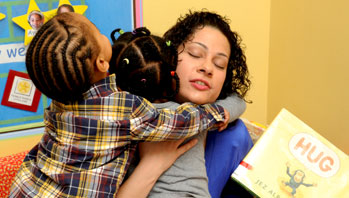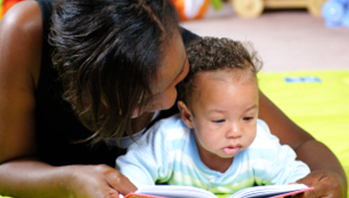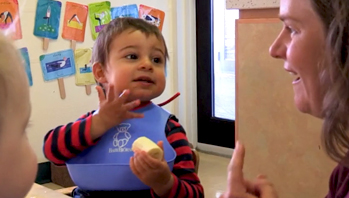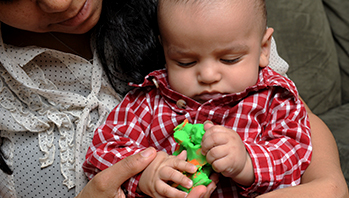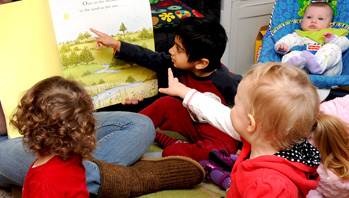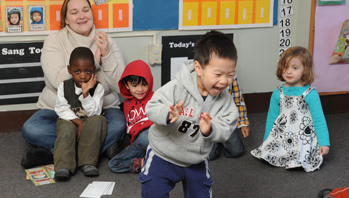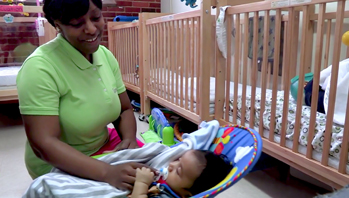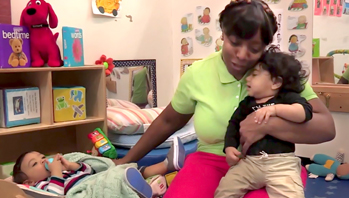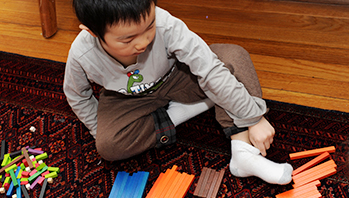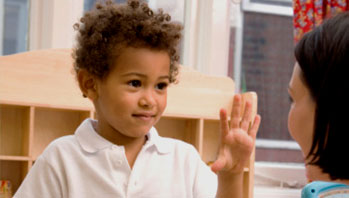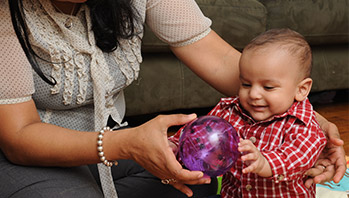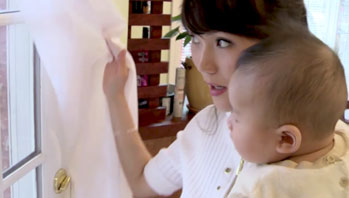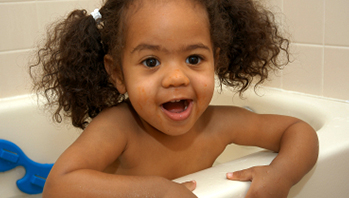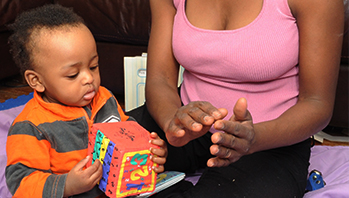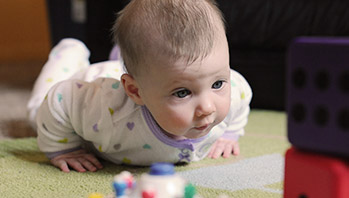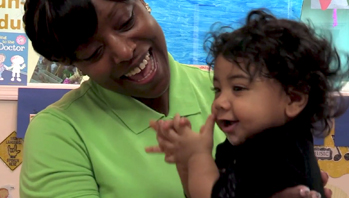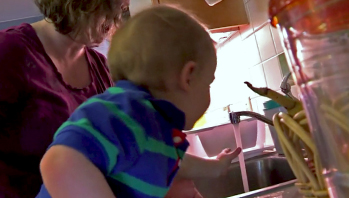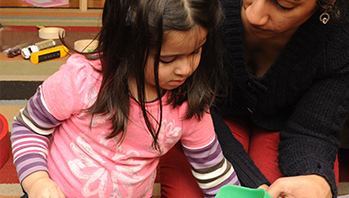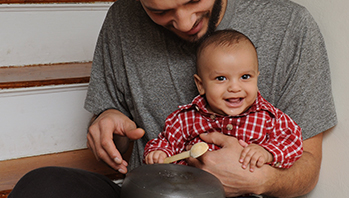Search
Found 85 results. Showing 4 of 5 pages.
Read About Feelings
Read books to toddlers that capture feelings and worries. Use the stories as opportunities to talk with toddlers about their own experiences and feelings.
Reading and Rhythm
Rhyming books are not only appealing to your baby, they help him learn, too!
Reading Gestures
Tune into a baby’s gestures and imitate them. Give her the words to go along with the gestures and when she’s ready, she’ll be able to use the words on her own.
Ready, Set, Squeeze!
Holding objects in his hands and squeezing them is good practice for when your baby eventually holds crayons, markers, and pencils.
See-Show-Say
Play a game with toddlers and help prepare them to become good readers. Focus on pictures in a book and talk about them together.
Self-Portrait
Help your toddler draw his own, life-sized self-portrait!
“Shake Your Sillies Out”
Sing songs to help give toddlers positive ways to express their emotions and to help build their emotional vocabulary. Create verses to go along with what toddlers are feeling.
Sing a Lullaby
Sing lullabies to soothe and comfort babies. Encourage families to teach you favorite songs or have them record songs they sing at home.
Songs for Routines and Transitions
Play or sing simple songs during daily routines or transition times. Babies will begin to recognize the songs and connect them to specific routines or transitions.
Sort It Out
Sorting by color, size, texture, or any other category helps your toddler learn how things are alike or different.
Talk and Go
Prepare for new experiences by talking about what is going to happen. Afterwards, talk about what you saw, heard, and did.
Talk It Up
What does your baby respond to? Talk about his favorite toy or whatever grabs her attention.
Tell Stories
Engage babies with stories during your daily routines. Use interesting words and longer sentences as you create your stories.
Theme Music
Pick a “theme” song to help your toddler make transitions throughout the day.
Touch and Feel
Babies love to reach, grab, and touch everything! Help him safely explore his sense of touch.
Tummy Time
Get down on your baby’s level and enjoy fun times stretching, reaching, listening, and looking.
Use Your Hands
Play hand and finger games with babies during regular routines to help them strengthen small motor muscle and learn to use their hands.
Water, Water, Everywhere
Let babies explore water. Join in as they explore and help them build their science vocabulary by giving them words to describe their actions.
What Happens If . . .
With a few pans or buckets, your toddler-scientist can experiment and explore!
What’s That Sound?
Your baby likes to hear a variety of sounds, and he will be amazed to discover that he can also make sounds happen.

